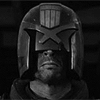- 30 Sep 2009 14:11
#13182149
Not a fascist, but certainly an authoritarian far-rightist.
Liberalism
I first became politically conscious after taking economics 101. My first reaction was, however, to take what I learned in microeconomics and make my own macro conclusions which, being completely ignorant of actual macro (back then) and a lateral thinker, translated into becoming an economic progressive. Back then I also flirted with the idea of autogestionism, which would in my view be as efficient as a free market economy but without the workers getting screwed. One quirk about my fiscal liberalism though was that I was a strong supporter of free trade and globalization, which I believed was the key for the development of the third world.
I was also deeply anti-religious and a strong social liberal.
Classical liberalism
My interest in economics flourished after taking econ, and I started learning about macroeconomics by myself. I learned about GDP, GDP growth and its effect on wages and quality of life, and I started reading economics books. My move to the right was clinched by my reading freedomnomics by John Lott, which explained real-world applications of supply and demand metrics, the importance of reputation to industries and thus why regulation was less important than I thought it was, and I quickly shifted to the economic center. Around that time I discovered Pofo, and upon reading the rather compelling arguments made in the libertarianism sub-forum my position as a moderate classical liberal was cemented.
I was of course still a steadfast supporter of free trade, free migration and a strong social liberal.
Geolibertarianism
Even though I was fairly neoliberal when I joined Pofo I still shied away from actual libertarianism, because I believed letting people just die from exposure was wrong. Further, I considered universal healthcare (as well as universal mandated insurance of all sorts) to be an optimal system, as it spreads risk across the entire population. My shift to actual natural rights libertarianism was, ironically enough, inspired by a pro-anarchist clip Abood posted, which explained that property of land isn't legitimate because land was not made by the hand of man. After seeing that I became interested in the concept of geolibertarianism and its relation to Lockean natural rights, and I concluded that people have a right to the products if their labor, outside of land. At about that time I discovered that strong price deflation had not been an economic problem in 19th-century Amerca, and further while it was a shithole laissez-faire US featured very strong GDP and wage growth, which conclusively pointed to the free market as the best path to prosperity, and the Fed and fractional-reserve banking as the source of today's economic ills. At that time I considered producer credit immoral as I saw it as labor usury, but I thought that it would disappear if the Fed and FRB did.
Classical liberalism (again)
My definitive shift away from natural-rights libertarianism coincided with Dave's arrival on the forum. His introduction thread mentioned that he had grown disillusioned with libertarianism as it was an "ideological straitjacket", which along with a rather compelling argument from Vera Politica on natural rights definitively led my shift away from deontological libertarianism, although for a time still I remained a libertarian on a strictly utilitarian basis. Around that time I temporarily dropped support for the LVT, as I considered it a garden-variety property tax that particularly hurt farmers. Instead I became a supporter of the FairTax.
Jeffersonian democracy
At some point I came to believe the American constitution is inherently libertarian--but only at the federal level. It places very few restrictions on state governments, other than the fact they must have open borders with each other. I thought herein lay the key to an efficient government--finally. If all functions the federal government was performing "illegally", namely regulation and welfare, were transfered to state governments then entitlements and regulations would be subject to political competition and ultimately reach a market equilibrium. Too much regulation would cause business to flee, and too little would cause consumers and workers to do so. Taxes too high would cause business and workers to flee, and too little welfare would cause beneficiaries to move to areas with better benefits.
Redistributionism
At one point I started discussing economics with Dave in-depth and personally, which led me to become more moderate by the day as he makes some rather compelling arguments. My first conversion to "Daveism" if you will, was the emergence of my support for forced savings. Then another compelling argument by a Marxist (Potemkin this time) led me to another fundamental ideological shift... this time as I realized the unavoidable link between politics and economics, and its implications. As I considered the separation of labor and capital and the conflicts associated with it inherently dangerous (since I still believed that pro-business government policy was necessary for economic progress), I became a "redistributionist", that is, an advocate of equal distribution the nation's stock of capital assets by means of forced savings and subsidies on capital investment paid for via high progressive taxes. I still supported extreme decentralism at that time.
National liberalism
Eventually I realized that most of Dave's economic arguments made sense and my support of neoliberalism was intellectually dishonest, and I became more friendly to economic interventionism and protectionism. I became aware of several points rather important to my fundamental change in ideology, which are that 1) protectionism is necessary for industrialization and free trade fundamentally benefits the developed world (the opposite of my thinking up till that time), 2) the development of a nation individually is separate from that of any other nation in the world, so locationally the state of the world economy is irrelevant as it's only an average, and 3) I was not and had never been a true internationalist. My strong support of free migration and free trade was nothing but Latin American chauvinism in disguise. I can't remember at what point I fully embraced Dave's economic ideology, but it took several months of political arguments with him, which mostly happened in private.
Ultimately my support of democracy also whittled down and crumbled as I increasingly realized that democracy doesn't actually have a better track record than nondemocratic regimes (that is, only a minority of democratic states are "successful", just like only a minority of undemocratic ones are), but successful nondemocratic regimes are actually wealthier and have more sustainable economic models than Western democracies. Later I realized that my idea of redistributionism was my last-gasp attempt to "save" democracy, as it was an attempt at making the general population more pro-business and thus more likely to vote for governments with sound policies, the purpose of which is defeated if the government is non-democratic, which led to my eventually dropping support for the idea (as it is inherently dangerous in that it puts capital in the hands of people who will probably mismanage it).
Reactionary
Even after fully embracing Dave's views on economics I stubbornly held on to my strong social liberalism. I eventually started letting up on that when I realized that that, too, was intellectually dishonest. I was taking a life view I could personally handle ("happy" nihilism) and expecting society to conform to those standards, out of a knee-jerk hatred of religious authority and social rules I've been harboring since high school. Once I realized that from a strictly pragmatic perspective there is some merit to traditional values being socially optimal, I started to support social conservatism more and more by the day. My views evolved to what they are today.
On economics I've started flirting with the idea of market socialism, meaning basically a state-run or mostly state-run economy where state enterprises operate commercially for a profit as if they were private. The rationale being that if the economy is owned by the state it will have less incentive to push for anti-labor policies such as free migration, as the state has a vested interest in the well-being of the nation. I've also become more strongly Georgist, as I've come to realize that properly applied LVT can effectively replace all federal-level taxes, or just easily double government revenues without anyone actually feeling the tax rise.
"The curious task of economics is to demonstrate to men how little they really know about what they imagine they can design." -F.A. Hayek


























 - By wat0n
- By wat0n